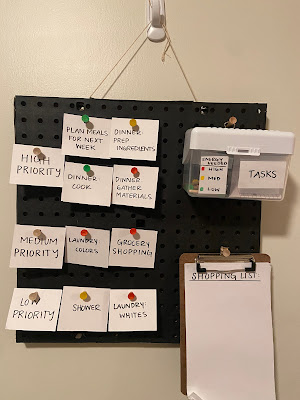Discussing Dementia with Children
Dementia is when an individual experiences a decline in cognitive function beyond what is usual in the aging process, and unfortunately, it is prevalent. This syndrome can affect an individual's physical, psychological, and social aspects and drastically affect their loved ones. Around the world, more than 55 million people are living with dementia.
Dementia is most common among individuals over 60, meaning millions of children are experiencing dementia through their grandparents. This might be their first exposure to a severe medical condition, and it can be difficult for them to understand what is happening. In this circumstance, many parents struggle to balance caring for their own parents and parenting their children. Explaining dementia is complicated because every case is unique. Individuals can have highly different experiences and show a variety of symptoms. Because of this, finding ways of explaining what is happening and what to expect can be immensely challenging.
My grandma suffered from dementia before she passed a couple years ago. Even as an adult, I had difficulty seeing my grandma confused and frustrated and my grandpa worried. If I struggled to understand this as an adult, I could hardly imagine how difficult it would be for a child. I chose this topic because I believe communicating to children in a clear, "non-scary" way can encourage them to develop empathy and patience and use these skills to adapt and play a role in the caregiving process. Understanding what is going on allows children to cope with their families and adjust to the new circumstances over time with adequate support.
Occupational therapists' work is focused on the client's world and chosen occupations; the people in their lives are pivotal to this and are, therefore, a large part of our focus. Providing education and finding ways of incorporating these individuals into our intervention can only improve the overall experience and ensure client-centeredness. The article I read, "OT's role in helping kids understand a grandparent's dementia," explores how it can be done with children whose grandparents suffering from dementia.
The article discusses "Weeds in Nana's Garden," a book by Kathryn Harrison that explains dementia to children simply and beautifully. Using a connection between a girl and her grandmother, the book demonstrates that the neuronal tangles experienced by individuals suffering from dementia are similar to weeds growing in a garden. The weeds weave themselves in the garden, preventing flowers from growing. Over time, the weeds grow denser, making the garden require extra assistance to survive. Not only does this metaphor offer a simple way of explaining a complex idea, but it does it in a way that encourages children to be empathetic. As the child in the book learns to accept these changes, they eventually take on a more significant role in caring for the garden.

Harrison and her children had this experience with their own Nana. Following Nana's diagnosis, their connection remained strong. Harrison noticed that her children naturally began playing a more significant role in her mother's care. They assisted her with completing small activities like stirring a cup of tea and encouraged Nana to remain active by listening to her favorite songs and involving her in their play. At some point, Harrison's daughter noticed weeds growing in her Nana's garden, which sparked the metaphor used in the book and drastically improved her children's comprehension of dementia.
As her mother's condition worsened, Harrison started to utilize additional caregivers. These caregivers encouraged her children to remain an active part of their Nana's care. They vocalized treatments and educated the entire family on ways they could assist. This commitment to staying a significant part of Nana's life helped strengthen the connection between a grandmother and her grandchildren and eased some of the pressure and stress on Harrison as she coped.
If you, or someone you know, is going through a similar experience and is looking for resources to explain dementia to children, I recommend this heartfelt story. It is a beautiful example of how we can support holistic approaches to well-being by creating inclusive and educational resources to support active participation in care.
$1 from the sale of each book will be automatically donated to the Alzheimer Society of Canada.
The back of the book contains a Question and Answer resource to help children further understand dementia.
Resources:
Chamberlain, M. (2019, February 11). OT's role in helping kids understand a grandparent's dementia. Seniors Flourish. Retrieved July 12, 2022, from https://seniorsflourish.com/kidsanddementia/
Harrison, K. (2022, March 21). Weeds in Nana's Garden ~ Children's book on Alzheimer's & dementia. Weeds in Nana's Garden. Retrieved July 13, 2022, from https://weedsinnanasgarden.com/
World Health Organization. (n.d.). Dementia. World Health Organization. Retrieved July 13, 2022, from https://www.who.int/news-room/fact-sheets/detail/dementia

Comments
Post a Comment